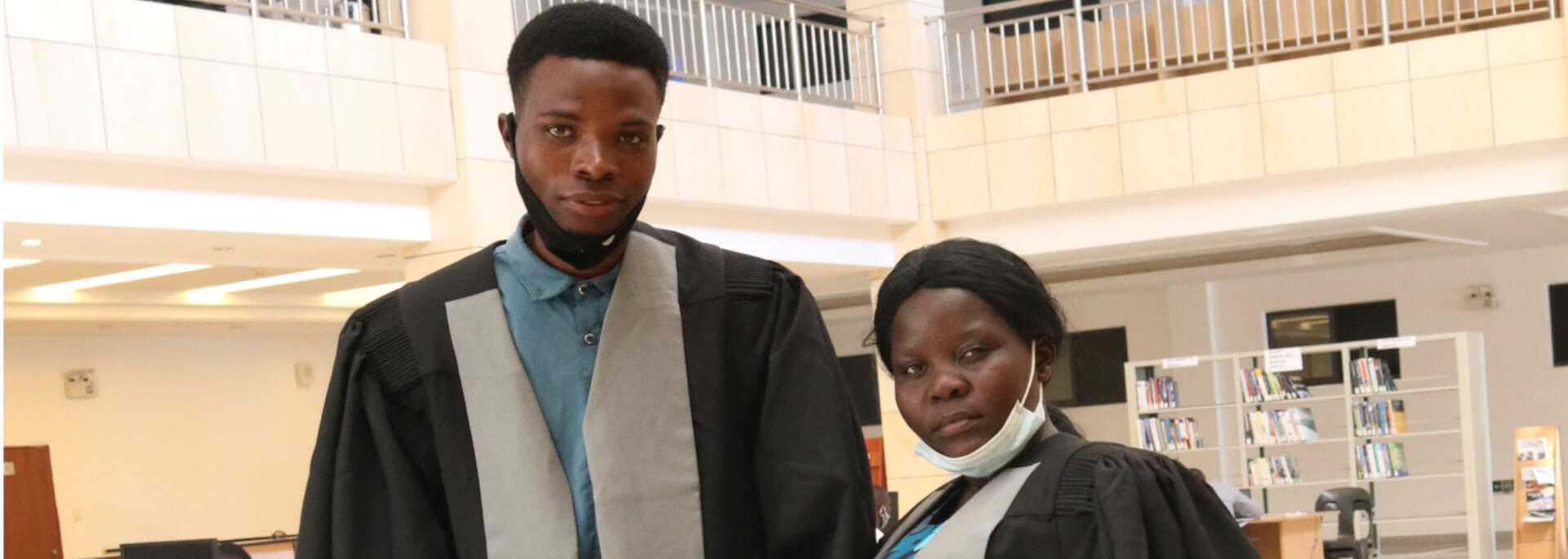Grace Chagweruka, 23, and Amadu Laisi, 25, are distant cousins from two distant villages in Ntchisi district, but they share a common story. Both come from poor families and, if it were not for the introduction of open and distance learning programs at public universities and a scholarship from the USAID-funded Strengthening Higher Education Access in Malawi Activity, they probably would not stand a chance of attaining a higher education qualification.
“The moment I missed selection to public university in 2020, I feared for my future. I am from a poor family and my parents cannot afford to send me to private colleges,” says Grace. Similarly, her cousin Amadu missed out on government selection to university in spite of scoring an admirable 22 points from a community day secondary school.
“My first choice was Chancellor College where I wanted to study computer sciences, but it never was to be,” he bemoans. Limited bed space at public universities and poverty are keeping many youths, particularly those from poor homes, away from higher education. Thanks to SHEAMA, many such sad stories are being rewritten.
Through the project’s collaboration with five public universities and a scholarship program, numerous open, distance and e-learning short courses at certificate and diploma levels are being rolled out, and this has seen many youths such as Grace and Amadu accessing skills that would make them employable.
The story of the two cousins took a dramatic turn last year when Malawi University of Science and Technology advertised an online certificate in Business Management and Entrepreneurship with a scholarship from SHEAMA targeting poor students. The two applied and were successful for both enrollment and scholarship. The ODeL mode of learning meant they had to study from home — online — using a mobile phone to access audios, videos and PDF documents from their lecturers. This entailed proper time management and scheduling of domestic chores, especially for girls who are often burdened by gender roles in the home.
